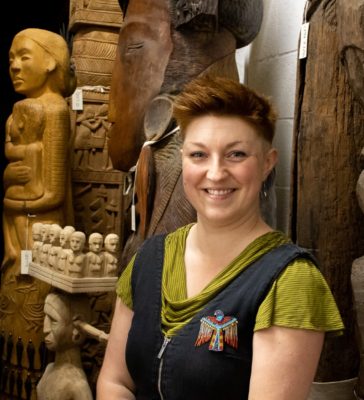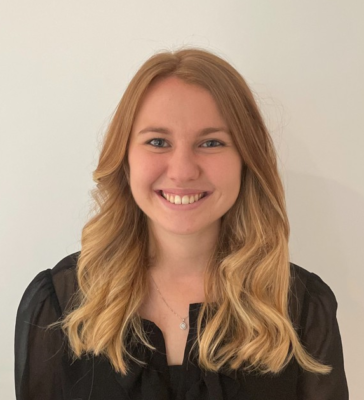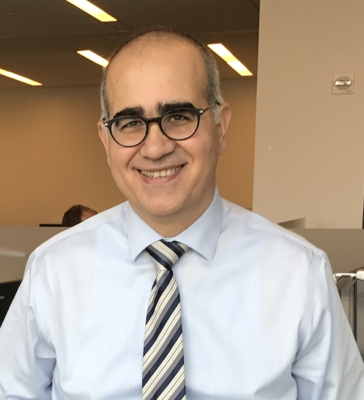
Katrina Dring
Current Employer/Organisation Name
Cambridge University Museum of Archaeology and Anthropology
What have you been doing since leaving Exeter, and what are you doing now?
I studied for an MA in the Arts of the Americas, Africa and Oceania at the University of East Anglia, Norwich. I then moved to Aberdeen to begin a CPD PhD between the University of Aberdeen and National Museums Scotland, Edinburgh. I discontinued my studies there after a year and began looking for museum jobs. I moved to Cambridge and worked in a few different places including the University Library, Duckworth Laboratory and Cambridge Assessment before settling in the Museum of Archaeology and Anthropology.
Why did you choose this career? And what do you enjoy most about your work?
I experienced a lot of museums and galleries in my childhood during holidays. Although I enjoyed them in part, I also often ended up bored and didn’t understand what could possibly merit spending so much time on your feet without ice-cream. When I was studying at Exeter, I began volunteering with the World Cultures collection at the Royal Albert Memorial Museum, and found it fascinating. I wanted to learn all about the collection and the people from who the objects came. From there I chose my masters degree to allow me to align myself more closely with anthropology and museums . What I enjoy most about the job is being able to constantly learn new things and show appreciation for other cultures in the way I record and care for objects. I gain a lot of satisfaction from resolving longstanding errors or misunderstandings in documentation, and love sharing these stories with people as a way of highlighting the importance of what museums do.
Please tell us if you were a member of any societies, groups or sports clubs?
I was part of the Forensics Society and the Swing Dance Society. Outside of the University I was also heavily involved in Ceroc and ran Blues classes
Were you part of the Exeter Student Ambassador Scheme at any point during your studies?
Yes.
What did you enjoy most about your programme and what was the biggest highlight?
I enjoyed the variety of what I learned. My courses included subjects like zooarchaeology, bioarchaeology and archaeological survey techniques but also forensic studies. The small size of the programme was a big bonus for me too – I think there were only 6 of us doing the specific degree . The Archaeology part of my degree required me to do fieldwork, and I chose to go on the 4-week dig in South Dakota in my first summer. It was a really eye-opening experience and I learnt a lot about the physical/practical elements of what a dig can be like, and which specific challenges were thrown up for that site (air conditioning does not make for easy digging!). I ended up returning the following two years to supervise the first year students, which meant I could keep in touch with people I had met out there.
What did you enjoy most about studying here?
The Exeter campus is lovely. I think the Forum was being completed early on in my degree, and I enjoyed the new space which that provided. Several of my lecturers were also really great.
Why did you choose to study at Exeter?
The specific combination of Archaeology with Forensic Science and the good reputation of the University
What skills and experiences have been most useful for your career?
A really good understanding of how different materials work and respond over time – this helps me to identify what something is made of even if I don’t know what it is! How finds from fieldwork and other types of collections can be classified and organised (both archaeology and forensics). How to manage large sets of data. Being able to study broadly, taking in information from numerous fields. This has meant that I stay flexible in my approaches and am not afraid to attempt to gain insight into a completely new field.
What advice would you give to a current student who wishes to pursue your career?
Spend time volunteering with collections – in a museum, in the archaeology department, a library (anywhere with large numbers of objects to manage and document). Museum jobs are often short term and high-demand. There will probably be gaps between getting those jobs, so you need to bear in mind that you may need to take jobs elsewhere for a while in order to pay rent. Make sure you save money when you can for similar reasons! Museums are full of interesting and often quite quirky people who are in the job because they care about it (definitely not for the money). It’s worth getting comfortable in interacting with lots of different types of people who have interests which may be very different to your own. Don’t give up. Finding a job in this industry can be really tricky and does require a certain amount of stubbornness. Look after yourself and your own needs at every stage, even when you are in the job. And enjoy it when you get there!
What are your plans for the future?
I would like to continue working with collections, and my next step would be to find a Collections Manager role or Curatorial Assistant type role (depending on the institution).

